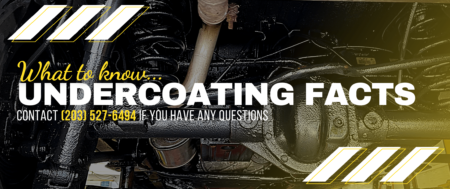When getting your classic ready for the winter, contact an experienced facility.
With September coming to a close and the lower temperatures coming much sooner than we anticipated, your car or truck needs to be more prepared than ever. This is even more important for classic car owners who plan on storing their vehicles throughout the winter months. Classic car owners should take the winter as a time to get your classic back in tune and up to date with all necessary maintenance. After several months of cruising, your classic deserves some attention, and at Naugatuck River Motors we’re ready to give it our all. Repairing smaller problems before they become bigger can save you thousands. Our goal is to keep your financial investment in your classics maintenance as low as possible and that starts with avoiding larger repairs. Don’t let your car go undiagnosed before it’s too late, avoid the additional financial burden, contact a premier Waterbury, Connecticut mechanic today! This is the best to possible way to increase the resale value
As your classic ages, vital mechanical components start to break down. Even if your car is stored properly and has undergone regular maintenance in the past, age catches up with every component. Taking the winter months as a time to catch up on preventative maintenance could potentially save you time and money. Before your classic is put into hibernation, here are some suggestions.
Replace Your Classics Hoses
If you abide by a classic car maintenance schedule, you may already know that changing the hoses in your classic car or truck is a priority before spending another season in storage. Often, hoses can be overlooked during regular maintenance, but replacing them is just as important as a basic oil change. Over time, your classics hoses will wear out, which may cause the overheating of your engine. If left unchecked, the hose’s ineffectiveness to cool your engine will cause costly damages. The best way to tell if your hose is fully functional is to check for any leaks. If the hose feels brittle to the touch or bends easily, it’s time for a replacement. Hoses typically are replaced every four or five years but we recommend speaking with our team experienced Connecticut mechanics first. It’s better to be safe when it comes to changing out hoses as they are relatively cheap when putting them against high-cost repairs. Be sure that your classic car parts are replaced with genuine reproductions, cheap replacement parts will break down faster and in the end cost more.
Once your hoses are replaced, be sure to fill your car or truck with the proper amount of coolant. Fire the engine of your classic and test out the hose to ensure there are no leaks. Be sure not to touch any leaking antifreeze.
Ethanol in Your Engine Can Corrode Your Classics Vital Components
Ethanol is highly corrosive to your classic. Ethanol is known to absorb water, contaminating your fuel tank, and creating condensation in your classics fuel tank. Water that is present in a fuel tank will enter the engine of your classic, causing irreparable damage. Don’t let your classic be susceptible to harm. As ethanol is hygroscopic, it will absorb any water which will restrict the flow of fuel as it expands fuel filters. The empty portion of gas tanks develops condensation, causing rust and other small debris to settle at the bottom of your fuel tank. These debris will clog fuel lines and other hoses. The best way to prevent further harm to your classic is by replacing hose lines with ethanol- resistant lines while keeping your engine as full as possible.
Brake Fluids
Ensuring your classic has brake fluid is vital to preventing faulty brakes. When the brake fluid is contaminated with moisture, rust can develop inside the classics’ vital components. As a hygroscopic fluid, your brake fluid will attract water. Water in your braking system will surely cause the development of acids that will target the wheel and master cylinders. At Naugatuck River Motors, we have seen countless classics need a full rebuild of their master cylinder and flushing out of brake lines. Brake fluid’s affinity for moisture will destroy your classics’ vital parts and cost you thousands in damages. Don’t let preventative internal damage of your classic go overlooked.
Tip: When changing brake fluid on your own, ensure the full bottle is used. DO NOT use old brake fluid! Once you open a container of brake fluid, the oxidation process has already started and the fluid is deemed contaminated.
We recommend getting in touch with our team of professional mechanics to change your brake fluid. Our mechanics will inspect and diagnose any premature rust inside your engine’s cylinder and advise you on the best way forward. The longevity of your classic is our mission. Although we love seeing new classics in our garage, our priority is keeping you out of it as much as possible. Abiding by our maintenance tips will keep it that way.
Wash It
Getting your classic ready for winter storage includes a full undercarriage wash. Removing any road brine or harmful debris can prevent rust. After a full underbody wash, our team recommends a full underbody undercoating to prevent corrosion of your classics underbody.
At Naugatuck River Motors, we have encountered just about all types of classic car repairs. As seasoned classic car mechanics who actively drive our own classics, we know that your classic is important to you. We take a fair approach to all our communications and repairs. Our superior customer service has led us to be a top-rated facility in the state of Connecticut. Distinguished services at affordable prices, that’s the Naugatuck River Motors way. Contact us today at naugatuckrivermotors.com | (203) 527-6494.










